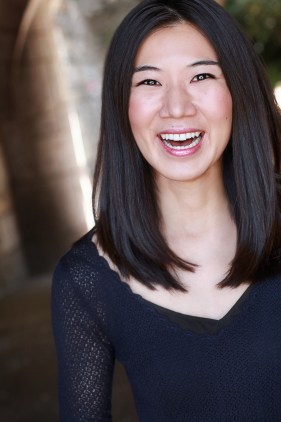At this point, after the world has collapsed-rebuilt itself-collapsed-on repeat, I shouldn’t be surprised about anything. And then I saw Walmart’s Juneteenth ice cream.
Listen, I’m not slow – I understand we need money to function as a society until we can figure out how to live like those in the Star Trek Enterprise era. But I did not expect people to go full-on ridiculous. A large corporation commercializing an event that many are so far removed from that they would just venture towards our final acknowledgment of slavery as an atrocity by going after our dollars – specifically the dollars of those likely to shop at Walmart, mid to lower-income blue-collar workers of varying races and views on race.
I also thought about how much recent conversations around diversity, equity, and inclusion have pushed us almost to the real conversations we need to have as a society: How much are you willing to understand about your privilege and what effect it has had either directly or indirectly on those who don’t have it? Allies, accomplices, and/or supporters of underrepresented people have to go beyond talking and understanding – it’s time to look in the mirror and figure out what you’re going to do to really create equitable societies. Or even if you want to. I had a professor in college who asked us in our Whiteness of Blackness (a course on literature on passing during the Harlem Renaissance): what are you really willing to give up so everyone can be free?
Was this what the slave-owners in Galveston, Texas thought about in 1865? After using the many excuses of religion, circus science, and flat-out fear-based racism to keep an entire people enslaved longer than the rest of the country – what did they tell themselves the day it was time to stop? We know they needed the labor because the Civil War practically bankrupted the South coupled with the onset of the industrial age. Former grandeur was now turning to dust and they were just a few shy levels up from the very people they believed they were superior to.
This is where my play Abolitionist Biscuits was born. It’s a play about two women – Black and White – in different times with different understandings of how they function in society. Though stations change for them, safety does not and neither does the assumption of privilege.
When Lower Depth Theatre (always learning from these active theater practitioners) commissioned a short piece from me for their Juneteenth Jamboree and Freedom Walk, I knew I wanted to make the piece worth their talent and time. I knew we had to be relevant to now. Why now? Why Juneteenth even in the most recent years?

As acclaimed journalist and author Annette Gordon-Reed says in her book On Juneteenth (a must read): “When I was growing up, we took Texas history twice—if I remember correctly, in the fourth and the seventh grades. I cannot say with certainty that slavery was never mentioned. Of course, I didn’t need school to tell me that Blacks had been enslaved in Texas. I heard references to slavery from my parents and grandparents. A common retort when another kid—often a sibling—insisted you do something for them you didn’t want to do was ‘Slavery time is over.’ And we celebrated Juneteenth, which marked the end of the institution. But if slavery was mentioned in the early days of my education, it didn’t figure prominently enough in our lessons to give us a clear and complete picture of the role the institution played in the state’s early development, its days as a Republic, its entry into the Union, and its role in the Civil War and its aftermath.”
Now we live in a world where social media reigns – and it’s not all bad. I learn so much from TikTok – what to do, what not to do, and often why. There is also a social media drama pouring out every other day – whether it’s a celebrity trial, a global social beef between influencers, or a reality star faux pas, social media is the gift (good or bad) that gives constantly.
One component of social media not widely talked about is how we use live features for safety – whether they result in our safety or not, we need witnesses because the world doesn’t always believe the marginalized. Philando Castile’s girlfriend used Facebook to stream her beloved getting murdered at a traffic stop. As soon as something in the air goes left, cameras come out. What does that say about us that we need to world to witness just in case it results in us…living. Just in case. Sometimes it is safer than calling those we employ to keep us safe. And sometimes it makes those whose job it is to keep up safe, act with more responsibility and authority. Everyone is on guard because we don’t feel safe.
The commercialism of the humanity of many, imploring the eyes of many to stay on us to feel safe, the eyes of others allowing us to teach a little something we know. This place was built to find the dots – or at least talk about the dots we need to connect for something to make sense in a time of senselessness.
t.tara turk-haynes’ play Abolitionist Biscuits will receive a reading as part of the Juneteenth Jamboree and Freedom Walk, 5pm PDT June 19th at the Fountain Theatre. This outdoor celebration of African American history, heritage, and freedom is hosted by Lower Depth Theatre in partnership with The Fountain Theatre.
For more information, visit lower-depth.com/juneteenth






